DETROIT — Detroit Pizza Bar owner Marcus Jones has been using a secret ingredient since he set up shop in 2022, the first new sit-down restaurant in the Livernois-McNichols area in decades.
It’s not in the pizza sauce, though it’s cooked every day in-house, and it’s not in the wings, which Jones, an Atlanta native, made sure to include on the menu. It’s JPMorgan Chase — and without its counsel, gap financing and mentorship, he said, the restaurant wouldn’t have opened.
America’s largest bank may seem like an unlikely partner for a neighborhood watering hole in Detroit: Banks, after all, have historically denied capital in predominantly Black neighborhoods like Livernois-Six Mile, not too far from the well-known 8 Mile Road in northwest Detroit. But over the last 10 years, JPMorgan Chase has put up about $200 million in philanthropy, financing and low-cost loans to people and institutions throughout the city, hoping to help Detroit rise out of bankruptcy and move on from decades of high unemployment, population loss and low morale.
The firm points to several promising returns on its investments in Detroit so far: growth in the median credit score, lower unemployment rates and a substantial increase in per capita income. It’s more than just charity: JPMorgan Chase wants new customers using its financial products.

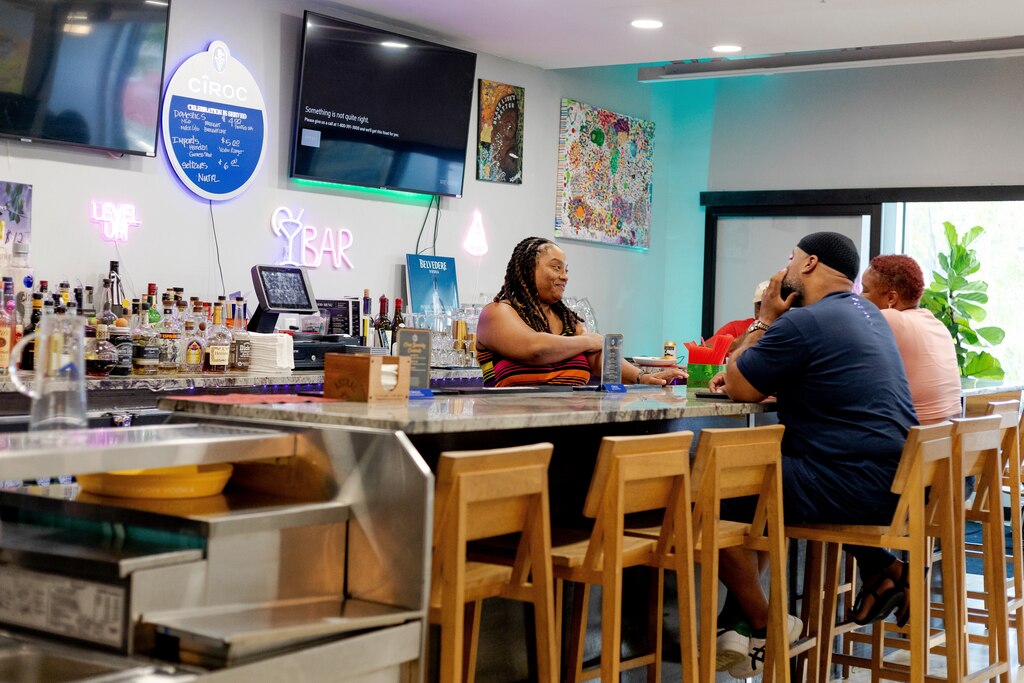
Now JPMorgan Chase is turning its attention to Baltimore.
Following the bank’s rapid expansion into the region, the bank pledged $20 million in 2022 through 2027 to small businesses, entrepreneurs and community developers focused on curbing the city’s vacant housing epidemic. The firm believes its business here depends on a stronger working class and is putting money in the hands of those who can supply jobs, wages and affordable housing.
Many of those familiar with the bank’s work said JPMorgan Chase can help Baltimore fill empty storefronts, reduce vacant housing and bring more good-paying jobs to city residents — all crucial to its financial sustainability.
“Chase’s initial injection of donations and philanthropy sparked a lot of organizations to do that, too,” said Terri Weems, group executive of the city’s workforce development arm, which has helped lower Detroit’s unemployment rate from more than 20% in 2013 to about 8% now. “You have to invest in people. I don’t know how Detroit could’ve gotten here without that investment.”
The power of alignment
During the Great Recession, Detroit’s average home price sank to $7,500, significantly below the national average of more than $200,000, according to a case study from the Harvard Business School. More than a quarter of city homes were vacant. At one point, city leaders considered selling artwork from the renowned Detroit Institute of Arts to cover pension costs.
President Barack Obama intervened in 2009 and used federal dollars to bail out General Motors and Chrysler when it appeared they would go under.
Still, the city took the extraordinary step in 2013 of declaring Chapter 9 bankruptcy. It followed automation and outsourcing stripping thousands of jobs from Motor City workers, fueling a population nosedive and an onslaught of abandoned homes.
That same year, lawyer, businessman and former Wayne County deputy county executive Mike Duggan won Detroit’s mayoral election as a write-in candidate. Many in Detroit credit Duggan’s private sector connections as key to the city’s reemergence. Duggan declined to comment for this story.
Insiders say Detroit’s leadership used its rock bottom positioning as a launchpad.
“Bankruptcy created that first moment where we were all wedged in a room together, like, ‘we got to figure this out,’” said Pierre Batton, a JPMorgan Chase program officer for global philanthropy based in Detroit.
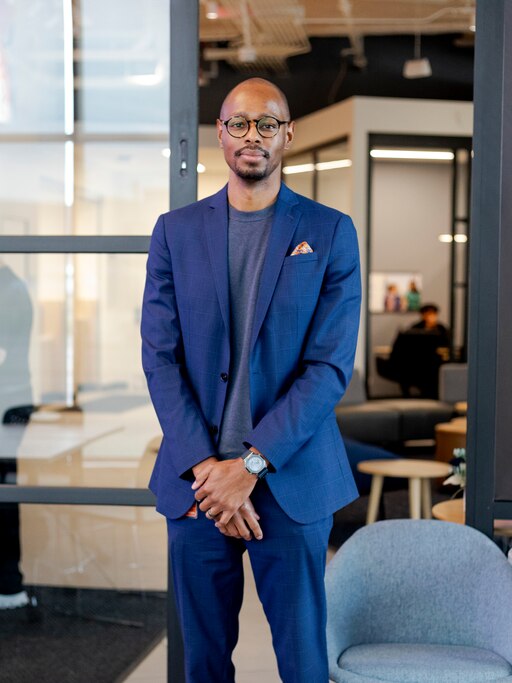
Batton — seated at a JPMorgan Chase conference room table in Corktown, a hip neighborhood where immigrants first settled — once worked for the city and with small businesses and entrepreneurs. Everyone, he said, coalesced around a common vision: propping Detroit back up.
That included employers, he said, who worked with the city and its workforce development team to ensure training for people who didn’t finish high school or go to college and to create new jobs matched the labor pool. The city lobbied successfully, for example, to build a new Jeep plant that would create thousands of new positions. Duggan has negotiated with new employers to use the city’s workforce arm to help fill the jobs.
Dan Gilbert, the co-founder of Rocket Mortgage and one of Detroit’s most valuable private sector leaders, spent big on downtown revitalization projects and relocated company employees from the suburbs into the city, spawning additional investment from private sector players such as Little Caesars Enterprises, the Michigan-based pizza chain. On a recent Thursday in downtown Detroit, gaggles of Rocket Mortgage employees strolled the streets looking for lunch spots, filling seats at tables and stopping for quick coffee breaks.
JPMorgan Chase, which has existed in Detroit in some form for 90 years and holds the most deposits of any bank serving Detroit, took some extra coaxing to get involved.
Unions — upset about municipal employees’ pension losses in Detroit — targeted chairman and CEO Jamie Dimon in 2013, seeking investor support to split Dimon’s job in two. Dimon then directed the bank to mobilize around Detroit, according to the Harvard paper.
Soon, the bank created four investment pillars in areas it knew best: housing, workforce development, small business lending and financial health.

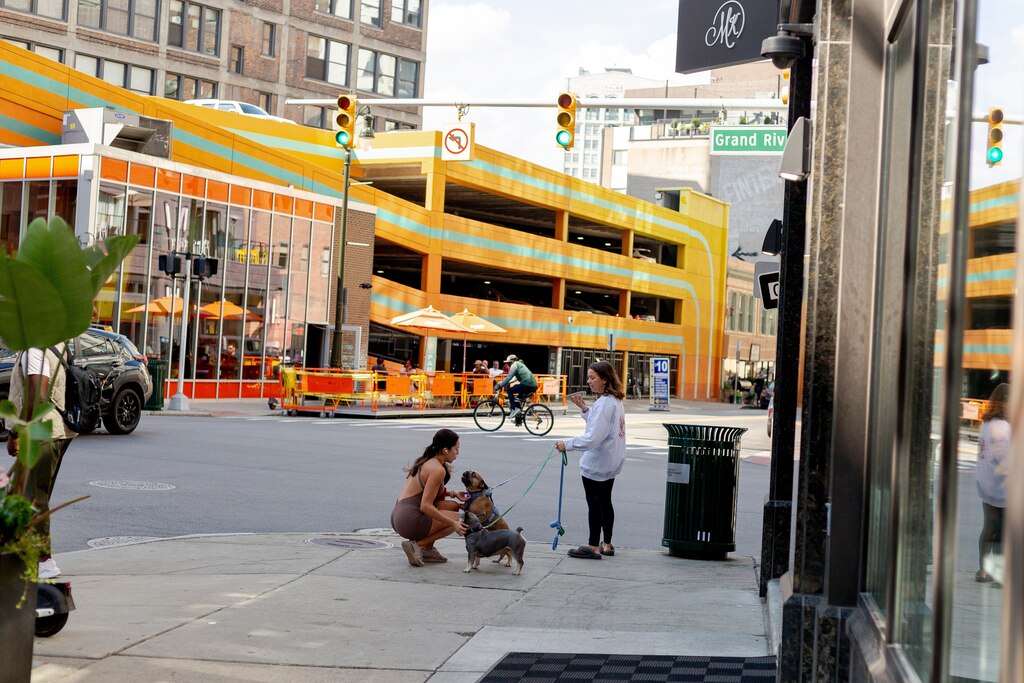
That translated to contributing millions of dollars to community lenders and developers and millions more to catalyze investment in Detroit’s infrastructure, commercial corridors and small businesses. It also led to the creation of a call center staffed by about 100 Detroiters, many of them without college diplomas or previous convictions. A second such site has since opened in Baltimore.
Baltimore, moving forward
Private sector involvement in Baltimore has been slower moving than Detroit, said Mark Anthony Thomas, president and CEO of the Greater Baltimore Committee.
Some have long regarded Baltimore as unstable, owing to decades of one-term mayors, city corruption scandals and sometimes unsupportive state leadership. A fractured civic network with ill-defined roles also scared some investors away, Thomas said.
But a new generation of city and state leaders is changing perceptions, Thomas said. Their first point of attack: the city’s surplus of vacant homes.
Bree Jones, a former Wall Street banker turned community developer, saw an opportunity to create a business in Baltimore centered on rebuilding neighborhoods without gentrifying them.
Her Parity Homes focuses on West Baltimore’s Harlem Park, where she knew she could buy homes for cheap without much competition. But taking possession of homes and then renovating them has cost Jones more than she anticipated. And the cash-strapped city can only do so much to help.
So Jones began forming relationships with banks — including JPMorgan Chase, which awarded her $2 million a few years ago for her work.
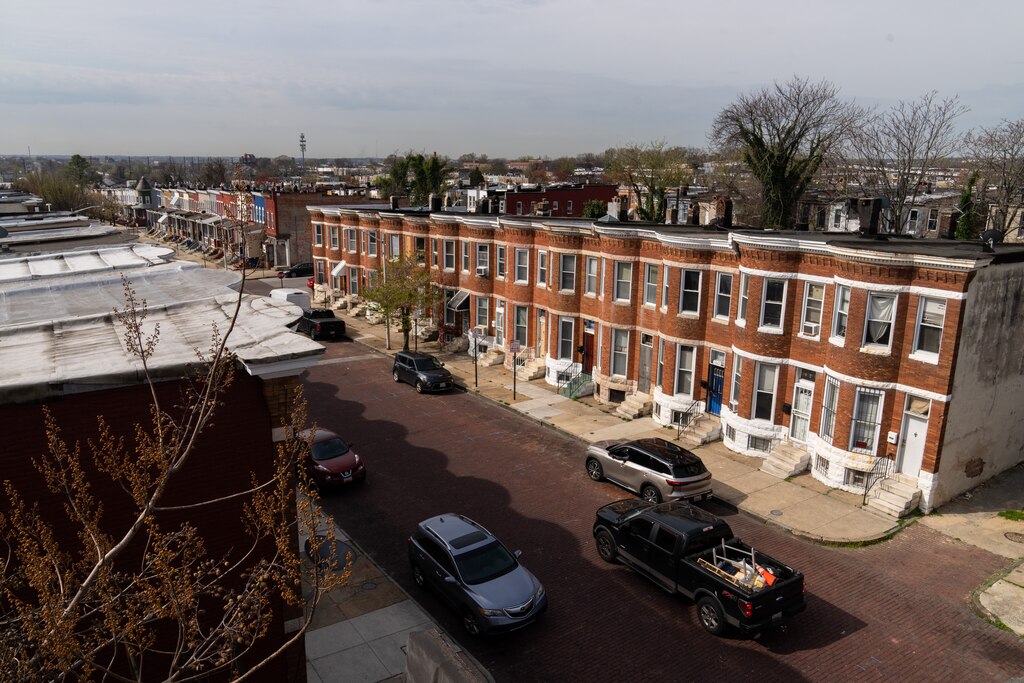
Jones and others view the Baltimore’s vacant housing stock as a chance to spread wealth across more neighborhoods. The mayor, GBC and BUILD, an interfaith community advocacy organization, put forward a plan last year to reduce blight in Baltimore using a combination of public and private investment. Last week, Gov. Wes Moore — who is wired in the financial world from his time running an anti-poverty nonprofit — signed an executive order that makes the issue an administration priority.
JPMorgan Chase’s investment in Jones and others committed to the vacant housing crisis signals renewed interest in the matter from the private sector. Last week, as Moore signed the state’s executive order, the GBC’s Thomas made an appeal to a packed room in West Baltimore for more.
“If you’re an impact investor or a capital provider, we need your help. ... We need your answering [of] a phone call,” he said. “This moment is long overdue, at a time where there’s so much uncertainty out in the world. One thing is certain, Baltimore and Maryland are moving forward.”
Creative capitalism
In Detroit, not everyone has felt JPMorgan Chase’s impact.
Jones, the pizza bar owner, understands this critique. Not all neighborhoods have been treated equally, he said, and not all employers receive the same incentives from the city.
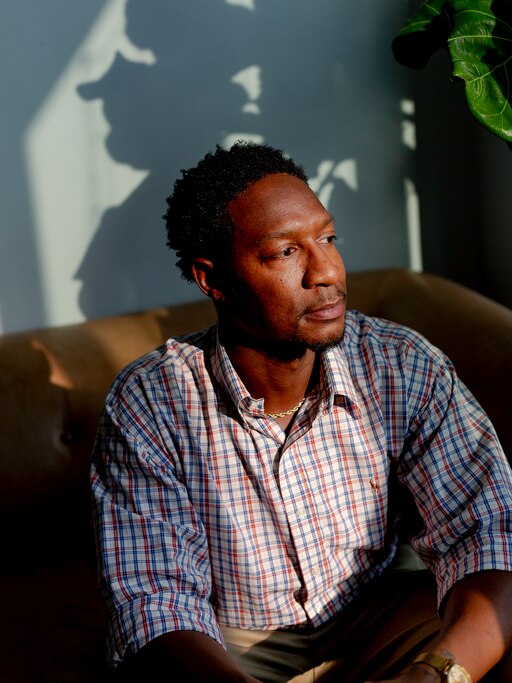
Look no further than downtown Detroit, he said, where rents, food and entertainment costs have skyrocketed as investment pours in.
“We watched this city go through the worst, and now that it’s being built back up, we can’t even afford it,” said Jones, who intentionally hires from the neighborhood and keeps menu items below $20.
Jones said he sees value in JPMorgan Chase’s help — which, he said, puts “real dollars” in the hands of real people and has engineered a new way of doing business.
“If folks aren’t working or they have housing instability,” he said, “that small business owner will never make it.”
That’s why JPMorgan Chase’s investments in Baltimore have flowed where they have.
A. Jay Nwachu, president and CEO of Innovation Works, will use his investment from JPMorgan Chase to help 10 entrepreneurs find rental spaces on West Baltimore’s Pennsylvania Avenue corridor, paying for build-out, legal services and equipment.
It’s a start, Nwachu said, but like Jones in Detroit, he knows it’s just one piece of the pie.
“I spend a lot of time reconciling the fact that I can’t blow up the capitalist system,” he said. “The time I have is to figure out how to make that system as creative as possible.”
After immigrating to Baltimore from Lagos, Nigeria, as a teen, Nwachu spent much of his early career in a recruitment role, helping large companies, such as banks, hire people of color. But Nwachu watched with frustration as those jobs turned over like revolving doors — he kept getting paid to fill the jobs, he said, but nothing happened to nurture the talent he delivered.
He came to run Innovation Works after launching what he described as a “pet project” with his wife that helped people in Africa start businesses, which included everything from coaching to resume writing. Before long, he connected with Fagan Harris — then the director of Baltimore Corps, a city workforce development organization, and now Moore’s chief of staff — who asked Nwachu how he felt about helping him fundraise capital for entrepreneurs in Baltimore. The rest is history.
Here he is now: Nwachu, seated at the Parks & People Foundation building in Druid Hill, waiting for new office space to be built after the Innovation Works team outgrew the last place. There are 180 small businesses and entrepreneurs who depend on him now — vegan bacon makers, clothing makers who learned to sew while incarcerated, neighborhood laundromats — and his only requirement is that they create jobs in Baltimore. That, to him, is a North Star he can follow.
“There’s a mutual beneficial relationship in a sense that, you have to put your money somewhere. I am doing the work that I think deserves that,” he said. “So we start there, right?”




Comments
Welcome to The Banner's subscriber-only commenting community. Please review our community guidelines.